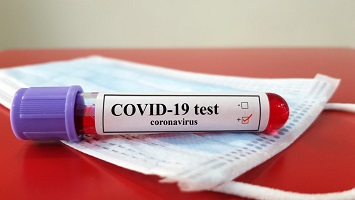
Antibody versus antigen testing? Swab test versus blood test? Short swab versus long? The array of COVID-19 testing options can cause confusion. As a trusted provider of employee health screening services for more than 35 years, Mobile Health can help you navigate the differences.
Antibody vs. Diagnostic Tests
COVID-19 tests fall into two categories:
- An antibody test identifies a previous infection and possible immunity.
- A diagnostic test diagnoses an active infection. Common diagnostic tests, also known as molecular or viral tests, include COVID-19 polymerase chain reaction (PCR) tests and Antigen tests.
Let’s take a closer look at antibody testing and the two diagnostic tests.
Antibody Test – Previous Infection
An antibody (IgG) blood test detects COVID-19 antibodies from a previous infection and potential immunity. Depending on timing, the test may not find antibodies in someone with a current infection. Labs deliver results in one to two days.
Individuals may test positive for antibodies without ever experiencing virus symptoms (asymptomatic).
Do not use antibody tests to diagnose a current infection. Currently, scientists don’t know whether antibodies provide protection (immunity) against getting infected again.
Mobile Health offers antibody IgG testing onsite at client facilities, at four Mobile Health clinics in New York City, and at network locations nationwide. The type of antibody test offered depends on the location.
To learn more, read our Antibody Testing FAQs.
COVID-19 PCR Test – Active Infection
Polymerase chain reaction (PCR) swab tests (often referred to as COVID-19 tests) help diagnose an active infection. The CDC recommends reserving COVID-19 testing for patients showing symptoms of the virus.
During PCR tests, clinicians use small 1″ swabs (Q-tips) to obtain specimens from the tip of the nose (anterior nares). Additionally, longer four-inch swabs collect samples from the back of the nose or throat. Because the shorter swab obtains a smaller sample, it yields more indeterminate or inconclusive results.
Based on current FDA data, PCR tests have a high level of accuracy, but take time to conduct and analyze. Subjects receive results in one to three days.
Mobile Health offers COVID-19 testing at our New York City clinics for asymptomatic patients who need clearance to return to work.
Antigen Test – Active Infection
An antigen test, a viral swab test, can help diagnose an active infection. In May 2020, the FDA authorized antigen testing for use in the ongoing health crisis.
Antigen tests are deployed quickly, with results sometimes provided in minutes. Also, antigen tests generally cost less to produce than PCR tests, and can be scaled to test millions of individuals per day. Also, keep this information in mind:
- They may not detect all active infections, as they are less sensitive than PCR tests.
- While positive results from antigen tests are highly accurate, a higher chance of false negatives exists. Negative results from an antigen test may need to be confirmed with a PCR test.
- Mobile Health offers COVID-19 Point of Care testing, with results available in 15 minutes.
We’re Here to Help
Whether you’re an existing client or new to Mobile Health, we’re ready behind the line to help you incorporate COVID-19 testing into your Return to Work strategy. That includes screenings to protect frontline workers, like Respirator Fit Tests (RFTs) of N95 masks.
Tags: antibody test, antigen test, COVID-19 PCR test, Diagnostic testing

